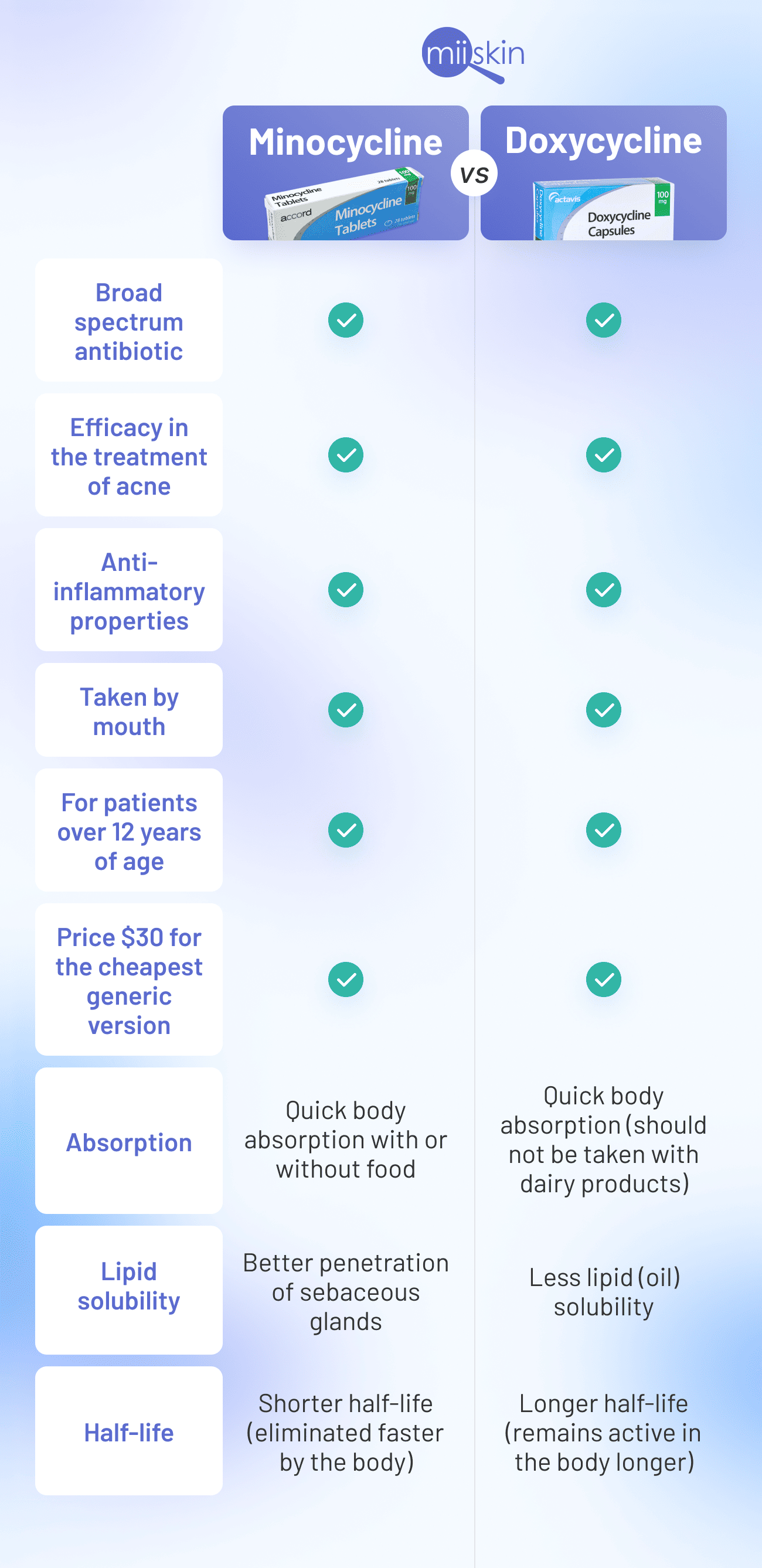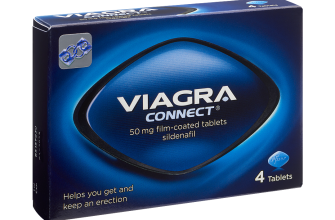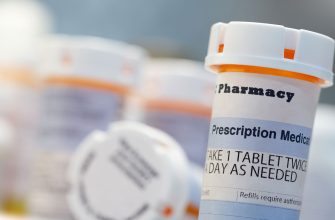For severe, nodular acne, Accutane often provides superior results compared to minocycline. Its mechanism of action directly targets oil production and inflammation, leading to significant improvements in a shorter timeframe. Minocycline, an antibiotic, primarily addresses bacterial infection contributing to acne.
However, Accutane carries a higher risk of side effects, including dry skin, lips, and eyes; increased sun sensitivity; and potential liver and blood lipid abnormalities. Regular blood tests are required during treatment. Minocycline generally has a milder side effect profile, though gastrointestinal upset, dizziness, and discoloration of teeth and nails can occur.
Consider your acne severity. If you have mild to moderate acne, minocycline may be sufficient. For severe, cystic acne unresponsive to other treatments, Accutane’s potent effects outweigh the risks for many patients. Always consult a dermatologist for personalized advice, as they will assess your individual needs and medical history before recommending a treatment plan. They can help weigh the benefits and risks to determine the best option for you.
- Accutane vs Minocycline: A Detailed Comparison
- Mechanism of Action
- Efficacy and Side Effects
- Dosage and Treatment Duration
- Cost and Accessibility
- Pregnancy Considerations
- Conclusion
- Understanding the Mechanisms of Action
- Effectiveness and Treatment Outcomes
- Side Effects and Potential Risks
- Choosing the Right Treatment: Accutane or Minocycline?
Accutane vs Minocycline: A Detailed Comparison
Choose Accutane for severe, nodular acne unresponsive to other treatments. Minocycline is a better option for mild to moderate acne or as an adjunct therapy with other treatments.
Mechanism of Action
Accutane (isotretinoin) reduces sebum production, a major contributor to acne. It also decreases inflammation and the number of P. acnes bacteria. Minocycline, a tetracycline antibiotic, directly fights P. acnes bacteria and reduces inflammation.
Efficacy and Side Effects
Accutane boasts high efficacy for severe acne, often clearing it completely. However, it carries significant side effects, including dry skin, lips, and eyes; increased sun sensitivity; and potential for elevated liver enzymes. Regular blood tests are mandatory. Minocycline is generally well-tolerated, but side effects like nausea, dizziness, and photosensitivity can occur. Long-term use can sometimes cause discoloration of teeth.
Dosage and Treatment Duration
Accutane requires a doctor’s prescription and careful monitoring. Treatment typically lasts several months, with dosage adjusted based on individual response. Minocycline is also prescription-only, but treatment durations are more flexible and generally shorter than Accutane’s.
Cost and Accessibility
Accutane is usually more expensive than Minocycline. Both require prescriptions, affecting accessibility based on individual insurance coverage.
Pregnancy Considerations
Accutane is strictly contraindicated during pregnancy due to severe birth defects. Minocycline should be used cautiously in pregnancy, with potential risks needing discussion with a doctor.
Conclusion
The best choice depends on individual acne severity and tolerance for side effects. Severe acne often requires Accutane’s power, despite its risks. Mild to moderate cases may respond well to Minocycline, offering a gentler approach. Always consult a dermatologist for personalized guidance.
Understanding the Mechanisms of Action
Accutane and minocycline tackle acne through different pathways. Accutane, or isotretinoin, directly reduces sebum production, a major contributor to acne. It achieves this by binding to retinoic acid receptors, altering gene expression in sebaceous glands. This significantly shrinks the size of these glands and decreases oil output.
- Reduced Sebum Production: The primary mechanism of action for Accutane.
- Decreased Inflammation: Accutane also possesses anti-inflammatory properties, further contributing to acne reduction.
- Anti-bacterial effects: While less potent than minocycline, Accutane also exhibits some antibacterial activity against Cutibacterium acnes (previously Propionibacterium acnes).
Minocycline, on the other hand, functions primarily as an antibiotic. It targets the bacteria Cutibacterium acnes, a key player in acne development. By inhibiting bacterial protein synthesis, minocycline effectively reduces bacterial populations within the pores.
- Antibacterial Action: Minocycline directly combats Cutibacterium acnes, thus reducing inflammation and pustule formation.
- Anti-inflammatory Effects: Minocycline also exhibits anti-inflammatory properties, though less pronounced than isotretinoin’s.
- Reduced Inflammation & Pustules: This leads to a decrease in acne lesions.
In summary, Accutane primarily tackles sebum production and inflammation, while minocycline directly targets the bacteria responsible for much of the acne inflammation. This difference in mechanism of action significantly influences treatment strategies and potential side effects.
Effectiveness and Treatment Outcomes
Accutane, or isotretinoin, boasts a significantly higher success rate for severe acne than minocycline. Studies show Accutane clears acne in up to 85% of patients, while minocycline’s success rate is considerably lower, often around 50-60%, depending on the severity of the acne and individual response.
However, Accutane’s superior efficacy comes with stricter requirements and potential side effects. Minocycline, being an antibiotic, carries a risk of antibiotic resistance and side effects like nausea, discoloration of teeth, and dizziness. These side effects are generally less severe than those associated with Accutane, which can include dry skin, dry eyes, and increased risk of depression. Your dermatologist carefully weighs these factors during treatment selection.
Treatment duration differs drastically. A typical Accutane course lasts 4-6 months, while minocycline treatment can extend for much longer periods, sometimes years, depending on the patient’s response and acne recurrence. This prolonged treatment with minocycline increases the chance of antibiotic resistance development and associated long-term effects.
For moderate acne, minocycline might be a suitable first-line treatment. For severe, nodular acne, or cases unresponsive to other therapies, Accutane generally provides superior and faster results. Always discuss potential benefits, risks, and alternative therapies with your dermatologist to determine the best approach for your specific situation.
Remember: Individual responses vary. What works for one person might not work for another. Open communication with your doctor is key to achieving the best outcome.
Note: This information is for educational purposes only and does not constitute medical advice. Consult with a dermatologist for personalized treatment recommendations.
Side Effects and Potential Risks
Both Accutane (isotretinoin) and minocycline carry potential side effects. Accutane users frequently report dry skin, lips, and eyes. Some also experience nosebleeds, and inflammation of the intestines is possible, though rare. More seriously, Accutane can increase the risk of depression and inflammatory bowel disease. Pregnancy is absolutely contraindicated during Accutane treatment due to the risk of severe birth defects.
Minocycline, while generally better tolerated, can cause nausea, vomiting, and diarrhea. It can also lead to photosensitivity, meaning increased sun sensitivity. Less common, but important, is the risk of drug-induced lupus, a serious autoimmune condition. Minocycline can also cause discoloration of teeth and skin in some individuals.
To help you compare, here’s a summary:
| Side Effect | Accutane | Minocycline |
|---|---|---|
| Dry Skin/Lips/Eyes | Common | Uncommon |
| Gastrointestinal Issues | Possible (including inflammation) | Common (nausea, vomiting, diarrhea) |
| Photosensitivity | Uncommon | Common |
| Depression | Increased risk | Uncommon |
| Inflammatory Bowel Disease | Increased risk | Uncommon |
| Birth Defects | High risk (contraindicated in pregnancy) | Not associated with birth defects |
| Tooth/Skin Discoloration | Uncommon | Possible |
| Drug-Induced Lupus | Uncommon | Possible |
Always discuss potential side effects with your dermatologist before starting either treatment. They can assess your individual risk factors and help you make an informed decision.
Choosing the Right Treatment: Accutane or Minocycline?
Your dermatologist will determine the best option for you, considering your specific acne severity and medical history. Accutane, a powerful retinoid, treats severe nodular acne unresponsive to other treatments. It’s highly effective, but carries significant risks, including liver abnormalities and potential birth defects. Regular blood tests are mandatory during Accutane treatment.
Minocycline, a tetracycline antibiotic, combats moderate acne by reducing inflammation and bacterial growth. It’s generally safer than Accutane, with fewer side effects, though some individuals experience nausea, dizziness, or discoloration of teeth. It may not be suitable for pregnant women or children under eight.
Consider these factors: Accutane offers a higher chance of complete acne clearance but demands close monitoring and carries substantial risks. Minocycline provides a safer, less aggressive approach suitable for milder acne. Discuss potential benefits and side effects with your doctor to make an informed decision that aligns with your health needs and risk tolerance. They will guide you toward the treatment best suited to your individual case.
Remember, consistent treatment is key regardless of your chosen medication. Follow your doctor’s instructions precisely for optimal results. Regular follow-up appointments are also crucial to monitor progress and address any potential complications.





